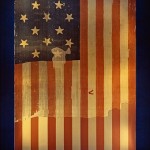Weekly Wrap Volume 65
How a bird reacts to the cold depends on what kind of a bird it is and there are a variety of methods they use to keep their legs warm, from the mundane to the much more fascinating. For starters, many birds will simply pull their legs and feet close to their centre of mass one at a time, keeping them warm with their feathers and body heat and off the cold ground. Likewise, some birds crouch down and cover both feet with their plumage. In particularly cold weather, the bird can also “fluff up” its feathers, trapping air between the feathery layers to keep extra warm from head to toe, so to speak. If there are other birds around, they may also… (more)
As you seem to have noticed, in the “Humpty Dumpty” nursery rhyme, nowhere does it say that Humpty is an egg, yet he is often presented as such in pictures and stories. The version of the rhyme that most children learn today goes like this: “Humpty Dumpty sat on a wall, Humpty Dumpty had a great fall. All the king’s horses and all the king’s men Couldn’t put Humpty together again.” The first known publication of Humpty Dumpty was included in Juvenile Amusements by Samuel Arnold in 1797. In that version, the last lines read… (more)
 How Were Kamikaze Pilots Chosen?
How Were Kamikaze Pilots Chosen?
During WWII, thousands of Japanese pilots made the ultimate sacrifice for their country by becoming, essentially, flying suicide bombers. But what was it that made these men so willing to lay down their lives in such a way? Were they really bright eyed volunteers eager to sacrifice themselves for the greater good, as the war time propaganda stated, or were they forced into it? Also, why exactly did the Japanese military resort to such a tactic in the first place? For starters, the Japanese military brass were desperate. The enemy had them outgunned, out-manned, and possessed certain critical technologies that Japan… (more)
 The Shockingly Old Origin of the Fax Machine
The Shockingly Old Origin of the Fax Machine
Today, we mostly think of the fax machine as an outdated piece of technology. While there are still some uses for it in an office-setting, technological advances are sending the fax machines to the same pasture as pagers, land-line telephones, and disposable cameras. Even if this is the last we hear of the beeps and bops that echo as an incoming fax is transmitted, the fax machine had a very long life – an amazing 171 years to be exact. Yes, the fax machine was invented in 1843, before the Model-T was even a dream, before the telephone was invented, and even before the American Civil War broke out. Alexander Bain… (more)
 The United States v. Paramount and How Movie Theater Concessions Got So Expensive
The United States v. Paramount and How Movie Theater Concessions Got So Expensive
In 1948, the Supreme Court ended the stranglehold Hollywood studios and distributors had on the U.S. movie market. Declaring the big eight a monopoly and ordering them to divest of their ownership of movie theaters and cease other non-competitive practices, with U.S. v. Paramount Pictures, et al., the Court opened the movie industry to independent producers and theaters, and indelibly changed the way we see films (and the films we see). Prior to the government’s efforts to break their trust, a handful… (more)
Bonus Quick Facts:
- According to Mike Tyson, his ex-wife Robin Givens was sleeping with Brad Pitt when Tyson and she were still married. Tyson stated in an interview about the specific incident, “I was getting a divorce. I was going to my lawyer’s office to divorce her that day but I wanted to sneak in…This particular day, someone beat me to the punch…I guess Brad got there earlier than I did. I was mad as hell. You should’ve saw his face when he saw me.” Funny enough, years later for Brad Pitt’s 50th birthday, Angelina Jolie got Pitt an autographed poster of Mike Tyson. On it, Tyson reportedly wrote, “Yo Brad! Still love your taste in women. Happy 50th Dude. Best Wishes, Mike.”
- An Australian man, Don Ritchie, died in 2012 at the age of 86 from cancer. For the final 45 years of his life, he lived across the street from the most famous suicide spot in Australia, known as “The Gap,” an ocean cliff in eastern Sydney. During that time, Ritchie stopped at least 160 people (with the unofficial number reported as high as 400 by his family) from committing suicide. How? For some, he simply gave them a heartwarming smile, said his standard phrase, “Can I help you in some way?” and invited them into his house for tea and a friendly chat. For others, he claimed he had to physically drag them away. Humorously enough, this “Angel of the Gap” spent much of his adult life as a life insurance salesman.
- Colonel Sanders, the famous founder of “Kentucky Fried Chicken” (who incidentally was 62 and broke when he convinced a restaurant owner to make that restaurant the first KFC) is often considered one of Kentucky’s most notable people. However, it should be noted that he was born and raised in Indiana, not Kentucky.
- The idea that would become the Big Bang Theory (science, not the show ;-)) was proposed by a Catholic Priest, likely one of the greatest scientists you’ve never heard of, Georges Lemaître. In a May 9, 1931 letter to Nature journal Lemaître wrote: “If the world has begun with a single quantum, the notions of space and time would altogether fail to have any meaning at the beginning; they would only begin to have a sensible meaning when the original quantum had been divided into a sufficient number of quanta. If this suggestion is correct, the beginning of the world happened a little before the beginning of space and time.” This would be coined later in a collection of essays by Lemaître as “The Primeval Atom,” which was the foundation of what would become known as the“Big Bang Theory,” after several other scientists would add to Lemaître’s work.
- The crew of Apollo 13 is remembered for the dramatic events that took place during their mission, but they also set an amazing, yet little talked about record that still stands to date. They traveled farther from Earth than any other humans in history when they were approximately 248,655 miles from Earth at 1:12 a.m. on April 15, 1970. At the time, they were also about 158 miles above the lunar surface on the far side of the Moon.
- When James Earl Jones did the voice of Darth Vader in Star Wars: A New Hope, he was paid only $7,000 (about $26,000 today). At the time, he said he “thought it was good money.” Of course, he didn’t reveal how much he made for the follow up in Empire Strikes Back and Return of the Jedi. We’re guessing it was a fair bit more. Either way, today Jones is thought to have a net worth of about $45 million, so he’s doing alright.
Other Interesting Stuff:
 Late for the Olympics: The Amazing Story of Kipchoge Keino
Late for the Olympics: The Amazing Story of Kipchoge Keino
Kipchoge Keino, aka Hezekiah Kipchoge Keino or (thankfully in the interest of avoiding typos) just Kip, is a retired athlete who ran for the country of Kenya. Throughout his career, Kip earned almost a dozen medals, half of which were gold, for being an amazing middle to long distance runner. The story we want to share is the time Kip was almost late for his own race and had to (literally) run to get there, then won a gold medal anyway, despite another major adversity in that race, which we’ll get to in a minute. First, a little info on the man himself, because he’s awesome. We’ll start with his name. Kipchoge is a Nandi… (more)
 The Melody for the Star Spangled Banner was Taken From a Drinking Song
The Melody for the Star Spangled Banner was Taken From a Drinking Song
The melody that would be borrowed for the Star Spangled Banner was extremely popular and well known at the time the future U.S. national anthem was penned. Around the time the Star Spangled Banner’s lyrics were written, this melody was being used for at least 84 popular songs in the United States alone, including Adams and Liberty – The Boston Patriotic Song and the subsequent tune Jefferson and Liberty, written after Jefferson was elected President. The original song that used the melody was To Anacreon in Heaven, written sometime between 1760 and the late 1770s, expounding on the virtues of wine. The song itself was first publicly published in The Vocal Magazine in 1778 in London. The music… (more)
Two foods are left out on the counter – fresh tomatoes and a bowl of sugar. Within a week or so, one will develop black spots and the other remains pristine, albeit perhaps a little clumpy depending on the humidity of the air. The reason? Osmosis. While microorganisms love sugar, they also need a certain amount of water to thrive. This level of freely available water, called “water activity (aw),” for bacteria is about 0.91, for molds it is 0.8 and for fungi (yeasts), it must be at least 0.6. The aw of fresh foods is generally about 0.99, while crystalline sucrose (table sugar) is a paltry .06. In its crystal form bone dry, sucrose (C12H22O11) loves to bind with water (H20). When present in sufficient concentrations, table sugar will suck all of the water around it. This is why sugar is an excellent food preservative. Via… (more)
 Why Area 51 is Thought by Some to House Aliens
Why Area 51 is Thought by Some to House Aliens
Area 51 is now so ingrained into popular culture that it’s virtually synonymous with Aliens; it’s impossible to mention one without the other somehow creeping into the conversation, but why are the two so intrinsically linked? Why do we automatically picture little green men any time someone so much as mentions the words, Area 51? First it’s important to realize what Area 51 actually is. For all intents and purposes and according to every government document ever released, Area 51 is a “secret” military base where they test experimental pieces of military hardware. For example, experimental supersonic jets such as the SR-71 Blackbird and the Lockheed U-2 Dragon… (more)
 Was Beethoven Really Deaf When He Wrote All His Music?
Was Beethoven Really Deaf When He Wrote All His Music?
If there is one Ludvig van Beethoven fact everyone knows it’s that he was deaf. But just saying “he was deaf” leaves a lot of pertinent questions unanswered, such as how deaf was he? How did he communicate with people? Of course, the biggest question is how did he compose what is considered some of his greatest music while he was deaf. Beethoven was born in 1770, and was introduced to music at a young age by his father who was a piano and violin teacher as well as a talented tenor. Young Beethoven was considered a child prodigy when it came to music, and performed his first public concert in his hometown of Bonn when he was just seven years old. He continued his musical career while learning from some of his great contemporaries, like Christian Gottlob… (more)
This Week’s Podcast Episodes:
- Podcast Episode #275: Ships and Champagne
- Podcast Episode #276: Penthouse and Stephen King
- Podcast Episode #277: Malice in Dallas- How Two Major Companies Avoided Court By Settling a Dispute the Old Fashioned Way
- Podcast Episode #278: The Truth About Ben Franklin and Daylight Saving Time
- Podcast Episode #279: Penguins and Their Feet
Quote of the Week:
- “What’s amazing is, if young people understood how doing well in school makes the rest of their life so much more interesting, they would be more motivated. It’s so far away in time that they can’t appreciate what it means for their whole life.” -Bill Gates
| Share the Knowledge! |
|







